Shortly after my capricious, self-possessed and occasionally ferocious mother slipped peacefully free of cancer’s chokehold, my dad confided her one unfulfilled wish to me: a visit to Skegness.
He didn’t know the source of this fascination with the Lincolnshire seaside resort. One heaving bough of Mum’s family tree is rooted in Norfolk, which has clear views of the Skegness coastline across a shallow bay known as the Wash on a serendipitous day, so it’s possible the town’s siren song called to her as a child.
I mentioned ‘Skeggy’ in her eulogy as a humorous buoyancy aid to prevent me from drowning in waves of grief and silently pledged, at the funeral, to visit in her honour.
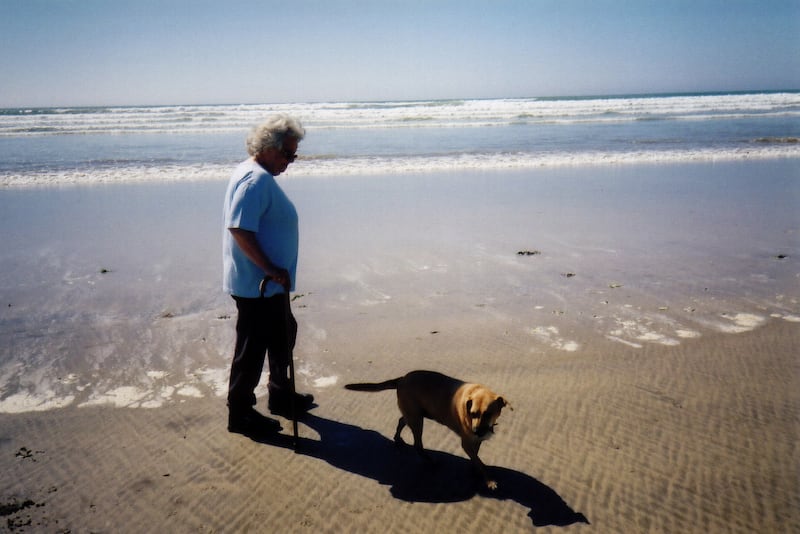
My mum, Vanda, loved to explore Britain’s coast with Dad and the dogs. The exposed brickwork, oak beams and vaulted ceilings of family-run Lincolnshire Coastal Cottages (lincolnshirecoastalcottages.co.uk) where I’m staying, managed by Sue Bowser and her daughter Lorna, feel like sympathetic touches she would have appreciated.
A former barn and crew yard have been thoughtfully transformed into five one, two, and three-bedroom self-catered residences, nestled among fields of the Bowsers’ 2,500-acre arable farm.
Sue’s father handcrafted the charming wooden binders of the cottages’ guest information packs and welcome hamper crates, laden with local produce including piquant gooseberry jam and award-winning plum bread, which can cushion thin slabs of cheese.
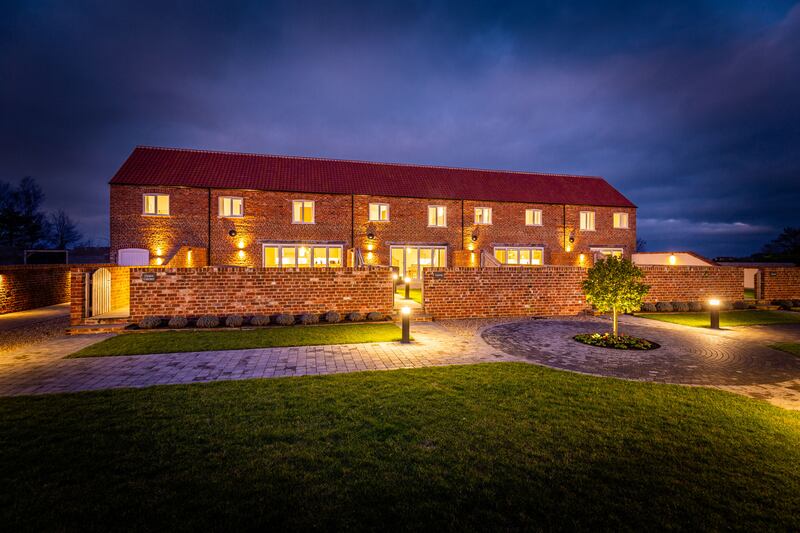
A red telephone box, reclaimed from a farm shed, guards the communal pétanque court and is crammed with books and board games. Tellingly, a copy of Bella Mackie’s barbed satire How To Kill Your Family is well-thumbed.
I ruefully imagine the cottage’s sofa swallowing Mum’s five-foot frame (she repeatedly emphasised an additional half an inch) with a borrowed Danielle Steel romance cradled in her lap, surveyed by one of the canine terrors (all cottages are dog-friendly with enclosed gardens).
My fanciful imagination strains to coax her into the private hot tub though, even with the promise of stargazing unspoilt by urban light pollution. So I soak alone, yielding knotted muscles to insistent, massaging jets of water.
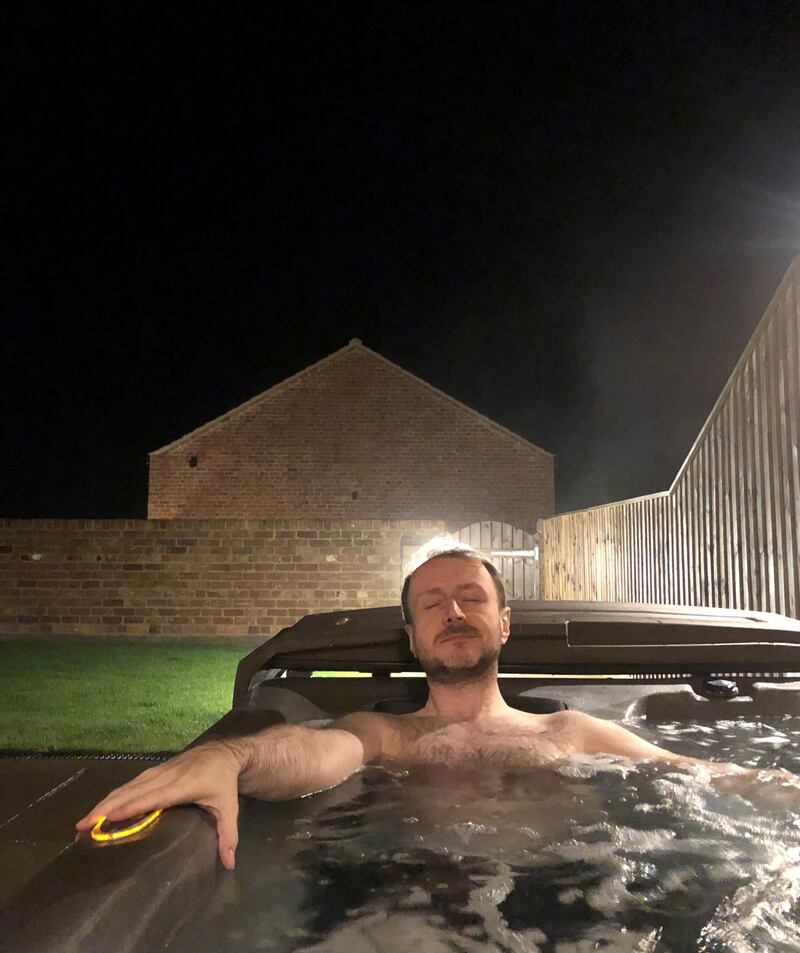
Early in the morning, Karen Campbell from Woodhall Spa Bike Hire (woodhallspabikehire.co.uk) delivers a lightweight frame e-bike with a 25-mile assisted range to the cottage. Daily hire (£22 adults, £11 children) affords flexible travel over the weekend including rideable sections of the England Coast Path from Skegness to Mablethorpe.
A quick safety briefing and a waiver form accompanies a helmet and sturdy D-lock, and assurances that the e-bike is air tagged in case of emergencies.
Embracing Mum’s spirit of carefree, spontaneous exploration, I cycle north for a leisurely couple of hours and choose Anderby Creek – roughly 12 miles from Skegness – as my turning point.
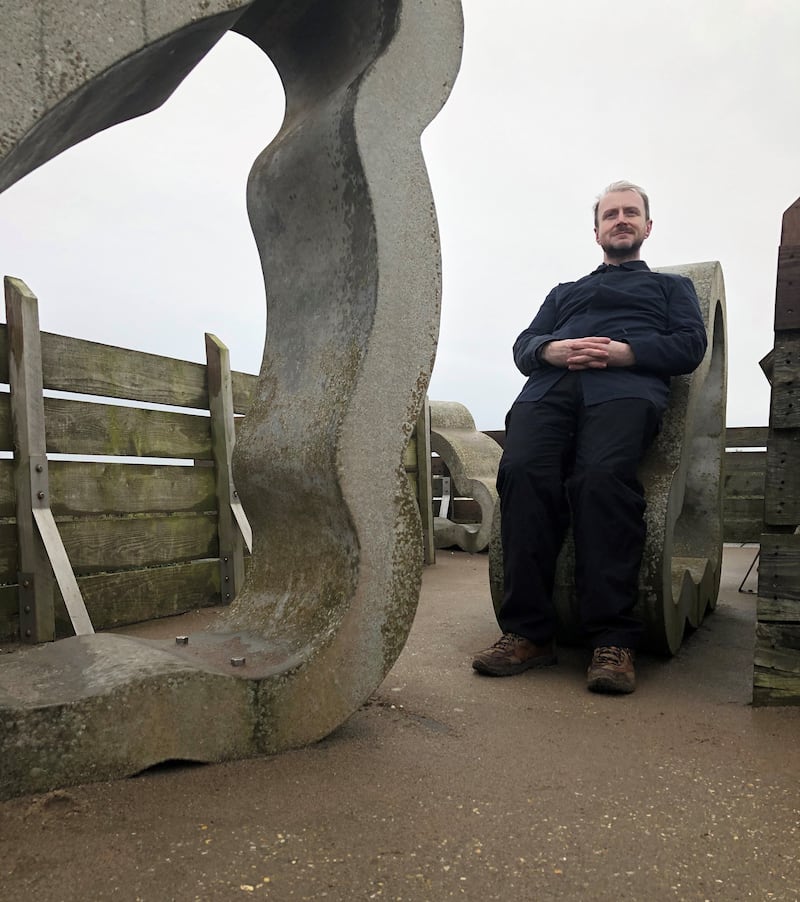
Off season, caravan parks are largely deserted but this small holiday village boasts two winning projects in the Structures On The Edge series of small-scale art installations, which encourage visitors to interact meaningfully with the Lincolnshire coast.
The Cloud Bar, the UK’s only purpose-built cloud-spotting station, facilitates brief moments of mindfulness (vaporous formations only exist for about 10 minutes). Five circular mirrors, positioned at different heights, can be rotated by hand to survey sections of the sky.
Cartoonish concrete cumuli provide resting places to stare into the convex reflections and meditate. Around 350m along the beach, up a gently ascending wooden boardwalk, the aptly named Round And Round House provides another striking vantage point atop the dunes.
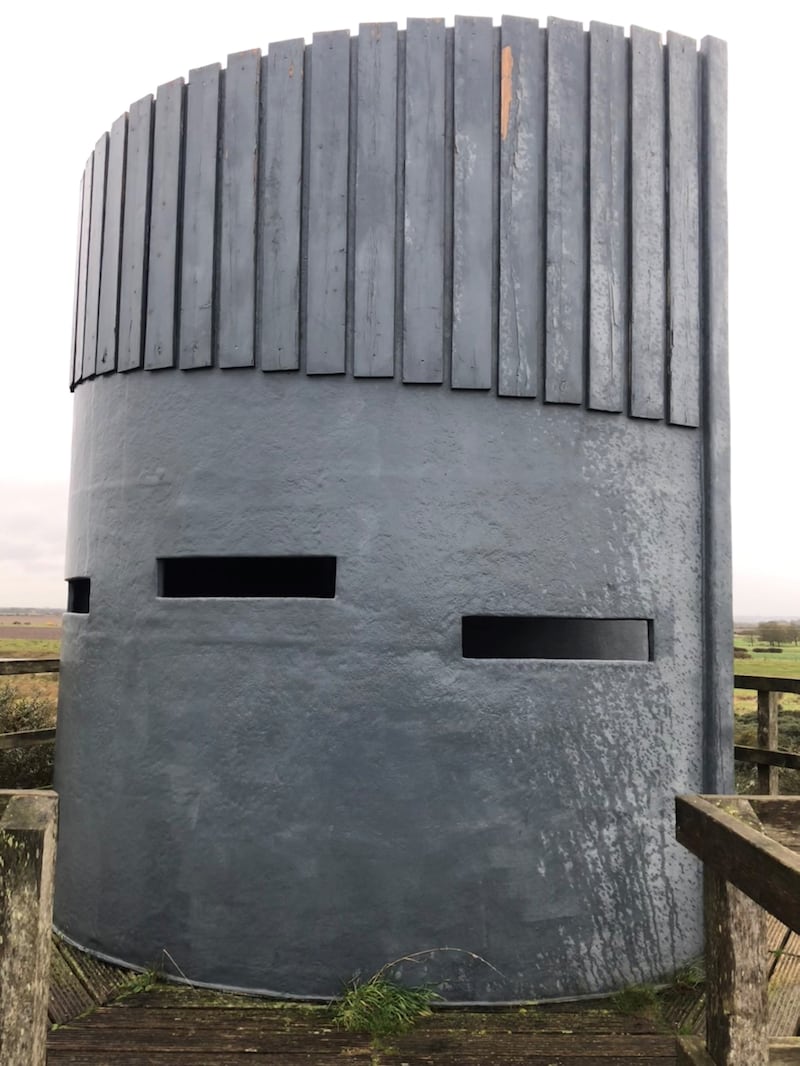
A perilously tight, single-file spiral staircase accesses the roof of the laminated plywood sentry, overlooking marshland shaped by calloused hands for grazing and salt-making.
Two miles back down the coast at Chapel Six Marshes, the seaward skyline is punctuated by an eggshell blue taper. Standing inside the galvanised steel frame of the 6.5m high Sound Tower, sufficient weight causes a yolky internal chamber to drop, revealing a pillbox-like slit to survey the beach and off-shore wind farm.
Clever architectural design creates a funnel effect, amplifying Mother Nature’s persistent coughs into a fully immersive soundtrack to the morning’s criss-cross of warmly bundled dog walkers.

A five-minute bike ride down to Chapel Point, where house martins nest in reed beds during autumnal months, the striking geometric roof design of the UK’s only purpose-built marine observatory gazes wistfully out to sea.
Constructed on an environmentally sensitive sand dune above a First World War defence structure, the crown-like frontage of North Sea Observatory rests on a fully suspended floor to minimise environmental impact.
Forward-titling glass in each regal point of the façade draws the eye along the beach. One of the last photographs I have of Mum, as I choose to remember her before cancer clouded her brilliance, captures her at the water’s edge of a similarly vast sandscape, using my grandmother’s walking stick for balance as the dogs huddle around her feet and cool weary paws in the lapping tide.

The observatory’s café takes full advantage of the dramatic panorama, providing binoculars to scrutinise the dunes and a rich array of winter birdlife including grebes, ducks, divers and wild swans. A hearty Lincolnshire breakfast (£10.95) ordered before the 12noon cut-off is served appealingly in the pan.
Gliding past silent rollercoasters and thrill rides of a dormant off-season Pleasure Island and into the town centre where shops and kiosks have been handed down through generations and a high street affectionately known as Chip Pan Alley emits delicious vinegary burps, year-round attractions celebrate the diversity of the local ecosystem and provide welcome sanctuary from a sporadic downpour.
The sandbanks of the Wash are home to England’s largest colony of harbour seals as well as a smaller population of grey seals. Skegness Natureland (skegnessnatureland.co.uk) plays a vital role in rescuing and rehabilitating injured pups before releasing animals back into the wild.
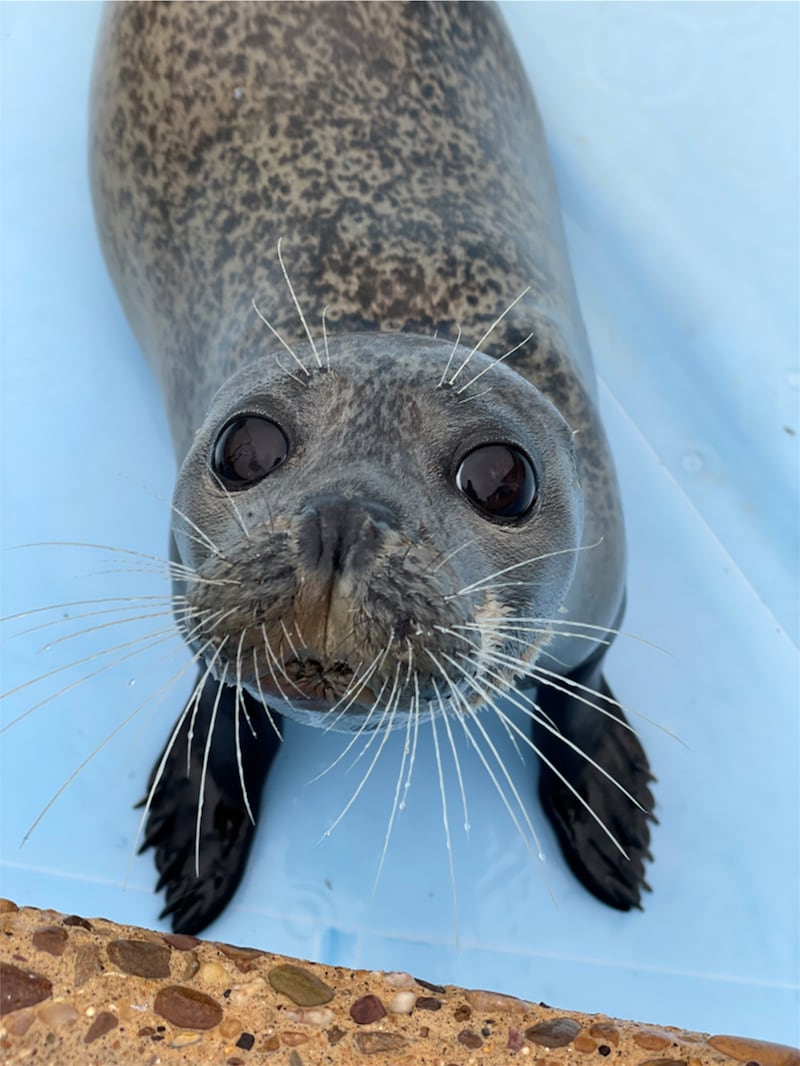
Lively crowds congregate for twice daily feedings at 11.30am and 3pm and in the resident pool, adult seals Fergie, Ollie, Pixie, Scarlett and Victoria fend off a hungry, swooping gull with a meaningful flourish of a flipper. Mum’s hooting laughter echoes in my head and I snort my approval too.
Close to the town’s iconic clock tower, Skegness Aquarium (skegness-aquarium.uk) also flies flags of conservation and education. A pirate-themed treasure trail creates a natural flow through exhibits including a centrepiece Aqua Theatre teeming with majestic black tip reef sharks and stingrays.
To end the day, I cycle past the cottage and head five minutes down the road to Gibraltar Point Nature Reserve (lincstrust.org.uk/get-involved/top-reserves/gibraltar-point).

Located at the north-west corner of the Wash, the 1000-acre site is an important transit point for migrating birds . Newly arrived Brent Geese from the Russian arctic honk salutations from my sheltered vantage point inside Lill’s Hut, which was originally built as a Second World War gun emplacement.
A gently fading sun silhouettes estuaries, mud flats and saltmarshes where samphire thrives, shelducks sieve mud for snails and seal pups can be glimpsed through a telescopic lens.
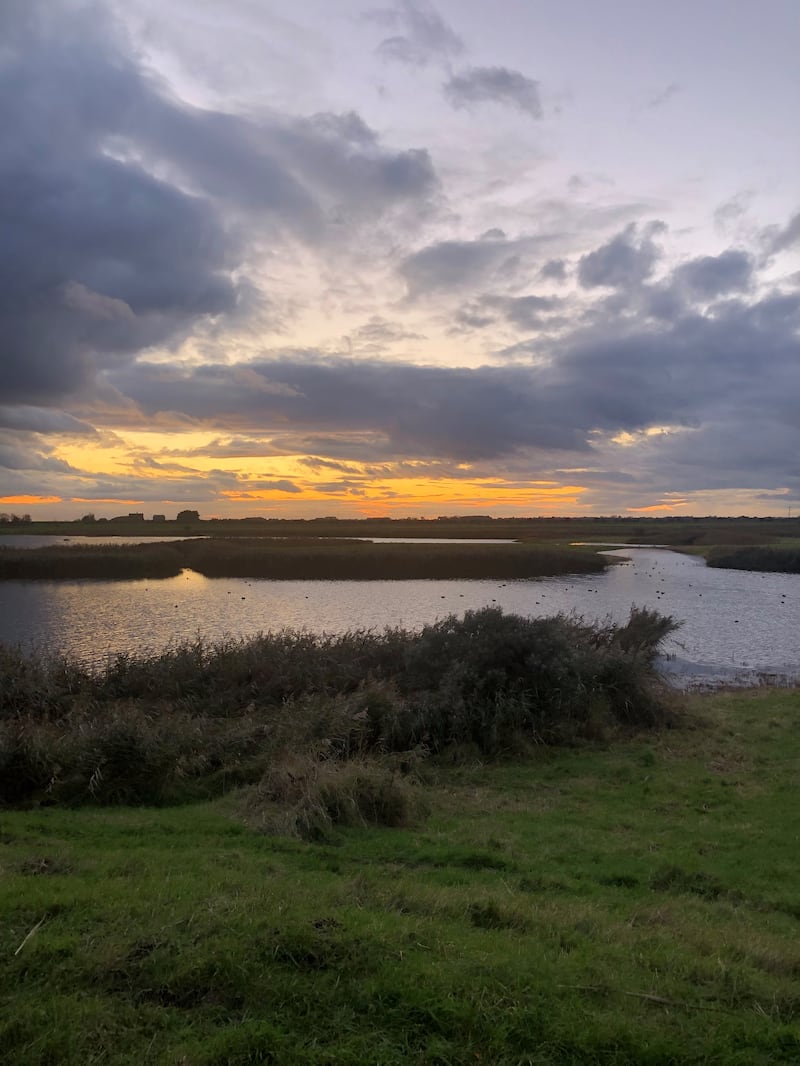
Back at the cottage, I battle contented exhaustion, ready for a shower and slumber. I’m suddenly aware of the outline of an animal in the car park, which seems to be staring at me.
Light fur gives the interloper a spectral quality and for the briefest moment, I allow myself to believe this might be some heavenly sign (Sue subsequently tells me that my unexpected visitor was likely a muntjac or young roe deer).
In that slow-motion of silent, solemn remembrance, I don’t feel alone and a floodgate that always opens when I least expect it is temporarily breached. I’m not sure what I was anticipating from Skegness, other than to fulfil my vow, but ultimately, I find some peace.
How to plan your trip
Self-catering accommodation at Gibraltar Barns with Lincolnshire Coastal Cottages (lincolnshirecoastalcottages.co.uk) starts from £395 based on two people sharing a cottage for two nights out of peak season.
Trains run hourly on the Poacher Line from Nottingham to Skegness via the market towns of Grantham, Sleaford and Boston, served exclusively by East Midlands Railway (eastmidlandsrailway.co.uk). For more information on the destination go to visitlincolnshire.com.com


